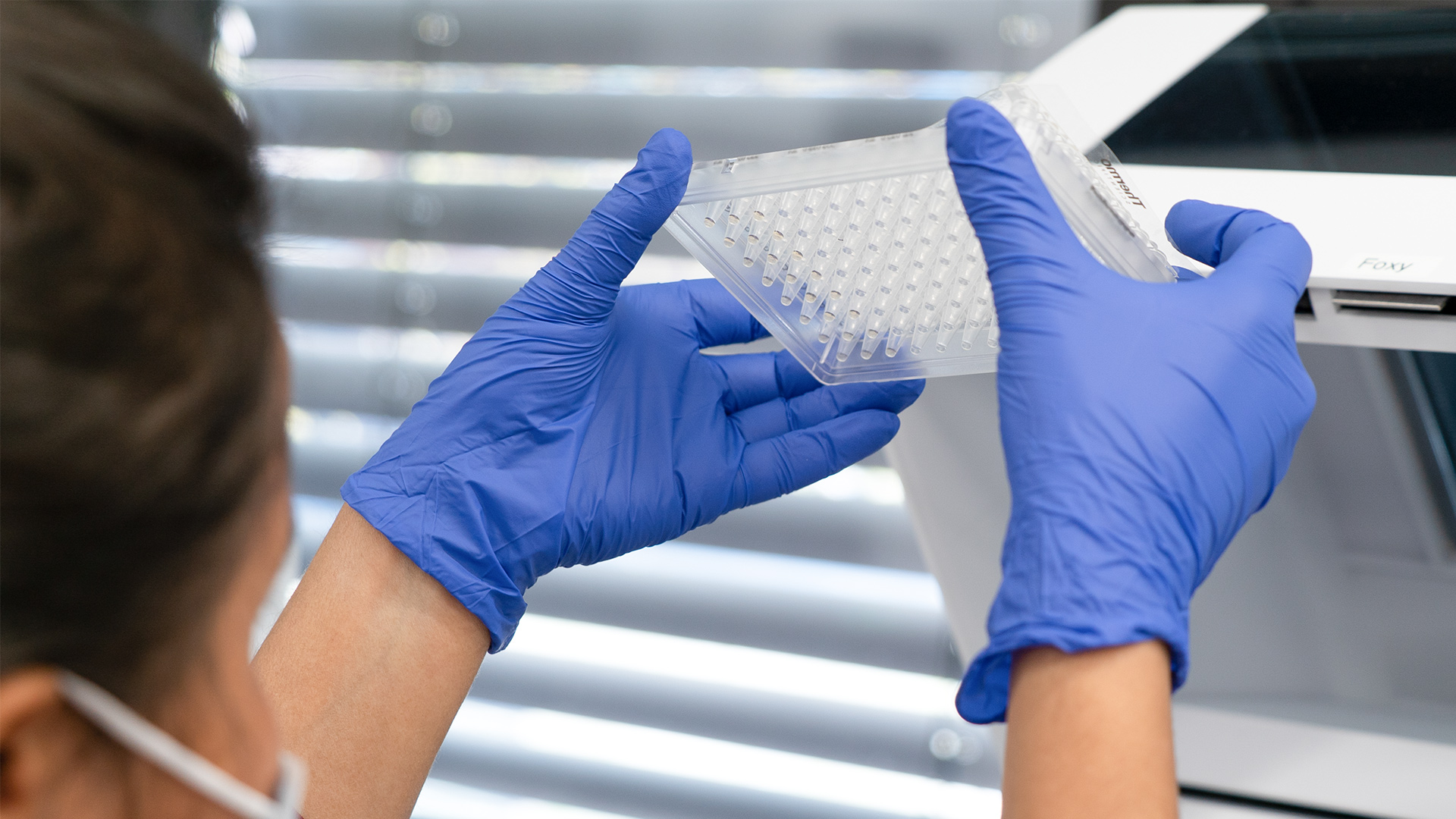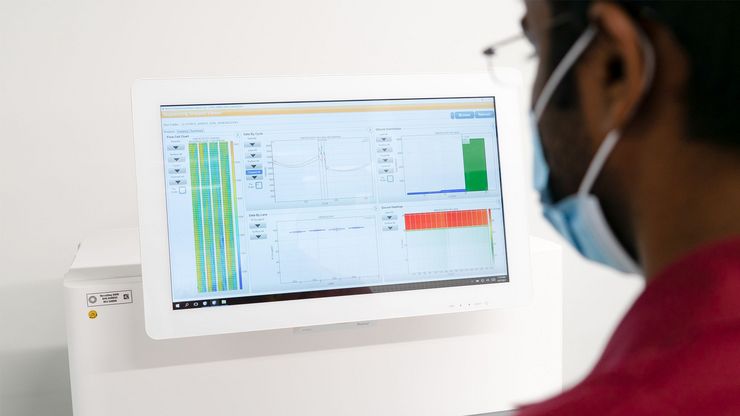Clinical Trial Support
We provide our partners with a broad range of services for successful clinical trial operations. Leveraging our proprietary Bio/Databank, multiomic platform, and extensive network of physicians, our team of experts ensure efficient and effective solutions to drive progress in the rare disease space.
Streamlining Clinical Trials With Customizable End-to-End Support
From overall study design and regulatory guidelines to patient access and general time and cost management, clinical trials can quickly become complex and resource intensive.
CENTOGENE is here to help streamline this process for our partners. We provide efficient, effective clinical trial support to help you optimize time and cost, while delivering the highest levels of operational and scientific excellence.
Based on the world’s largest rare disease-centric Bio/Databank of its kind and decades of combined experience, our clinical trial support team can help you:
- Further investigate new biomarkers
- Investigate disease prevalence
- Identify drug targets
- Monitor candidate therapies
- Validate new biomarkers as clinical endpoints
CENTOGENE services in clinical studies
CENTOGENE services in clinical studies span the full spectrum of customized solutions for orphan drug development including in vitro molecular screening, epidemiological studies, biomarker development as well as patient recruitment and identification.
over 30 pharmaceutical partners
CENTOGENE established collaboration agreements with over 30 pharmaceutical partners including Denali Therapeutics, Evotec AG, Orphazyme, Aldeyra Therapeutics and Chiesi Germany. Our joint projects involve thousands of patients affected with rare hereditary disorders. Pharma partners are provided with a wealth of information for their orphan drug trial programs fostering the development of new therapies.
rich collection of biological samples
CENTOGENE's clinical studies yield a rich collection of biological samples. Our highly innovative analytical platforms can analyze genetic, proteomic, transcriptomic and metabolomic data in addition to biochemical and clinical data. We have developed a powerful tool that helps patients by providing them with a quick diagnosis and expert guidance on treatment options.
Our Other Services
Get in Touch With Our Business Development Team
Call us
+49 (0) 381 80 113 - 416
Mon. – Fri. 7 a.m. – 6:30 p.m. CET
Sat. 8 a.m. – 12 p.m. CET







